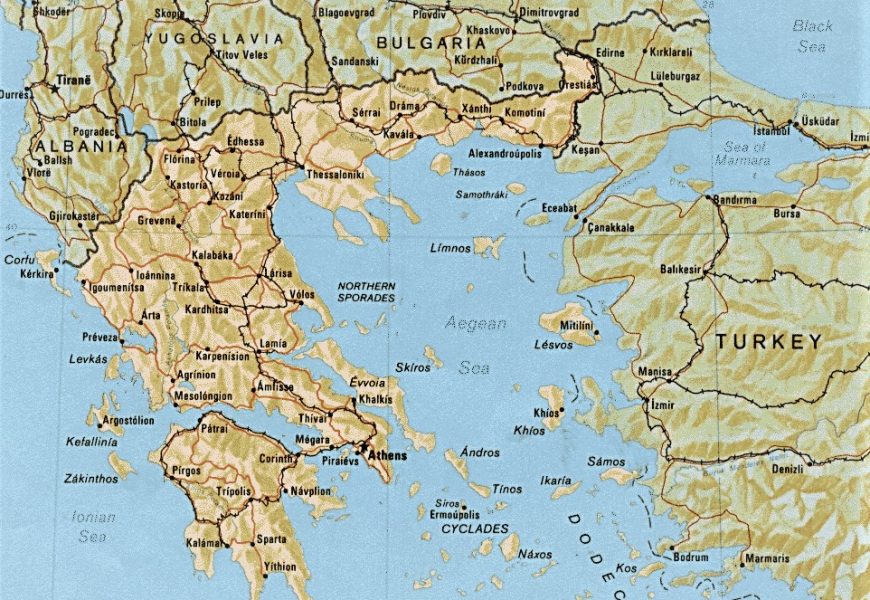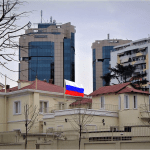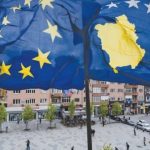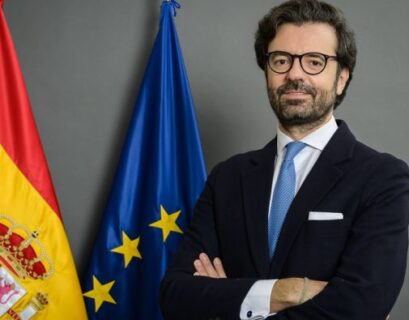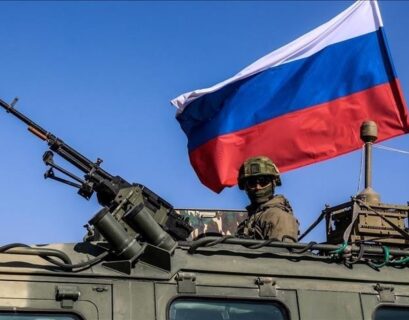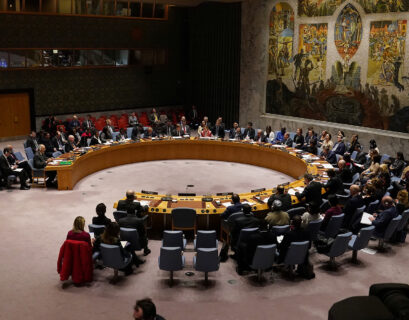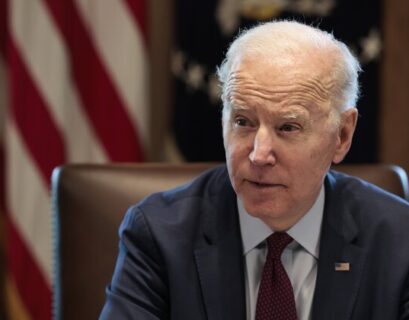by Ledion Krisafi
Albania’s Balkan policy throughout the last three decades has been an almost constant balancing of Greece through Turkey. Beginning in the 90s and continuing throughout the Kosovo War, the disintegration of the Socialist Federal Republic of Yugoslavia reconciled a seven decades-long security problem in the Albanian Northeast. The war resulted in a change of the Albanians’ status and position in the political life of North Macedonia, and led to Kosovo’s subsequent independence in 2008. Albania’s northern and eastern borders were no longer tormented by the security menace presented by the Kingdom of Yugoslavia, which later became the Socialist Federal Republic of Yugoslavia.
While the 90s removed one of Albania’s main external security challenges, it revived another security challenge to an extreme not seen since the end of the Second World War. Greek financial, economic, political and religious presence in Albania, especially in the South of the country, reached a level not seen since the Ottoman Empire. At the same time, extreme right-wing and nationalist groups in Greece revived their claims on Northern Epirus, even attempting military confrontations.
While Enver Hoxha’s Albania didn’t have the need to balance with any other power in the Balkans the security challenges of Greece and the Socialist Federal Republic of Yugoslavia because of the regime’s heavy investment in the army and the militarization of the state, post-communist Albania because of the disintegration of the army in the beginning of the 90s, did have the need to balance in order to survive.
Survival was undertaken in two ways:
First, by accommodating fallen Greek soldiers in the building of cemeteries for
the Greco-Italian war of 1940-41, in contrast to the experience of similar
cases of Italian, German, British and other fallen soldiers in the Albanian
territory. The Autocephalous Orthodox Church of Albania also accepted Greek
influence in 2008. Furthermore, Berisha made the incredible decision to abolish
the century-old, internationally recognized maritime border with Greece in
order to negotiate a more favorable position for Greece— and consequently
receive Greek approval of Albania’s NATO membership. Second, this
“survival” was carried out by building closer political, military and
economic ties with Turkey, Greece’s geopolitical rival in the Balkans and the
Eastern Mediterranean. These ties had
been cultivated since the beginning of the 90s following the fall of the
communist regime. They were especially important during the period of wars
in former Yugoslavia, as well as during the Kosovo War of 1998-99, when Albania’s
borders were directly threatened.
In the last 8 years, since coming to power, Edi Rama has increased the intensity of Albania-Turkey relations. After the devastating earthquake of November 26th, he said: ‘’We have a plan A, a plan B and then we have Turkey’’. In the post-earthquake reconstruction period Turkey was the main contributor to the building of over 500 new houses. In the last years, Turkey has become a kind of point of reference, a kind of “last resort” upon which Albania can count on in periods of difficulty, when there is no other alternative.
This has been done mostly for two reasons: first, because of the continuing disappointment with the European Union in the Western Balkans in general about the on-going and never finishing integration process and new conditions which never seem to end and the considerable bureaucracy, while on the other hand Turkey’s approach is more direct and practical, more in the line of ‘’getting things done quickly’’; second, the opening of the maritime border issue by the Berisha government in 2008 and the subsequent 2010 decision by the Constitutional Court to annul the 2009 Greece-Albania agreement as unconstitutional and the other open issues between Albania and Greece have returned the need for Turkey as a balancer.
Albanian Prime Minister Rama’s visit
to Ankara in January was the most impressive and symbolic of any Albanian high
official in recent times. The visit and the agreements signed represented a
considerable increase in the standing of Albania-Turkey relations. Turkey’s
construction of a new hospital in Fier in a record three months period,
the renovation of old parts of Gjirokastra and Berat, the reconstruction of
Mosques and other Muslim heritage sites and the creation of the Strategic
Cooperation Council were all signs of the deepening of amicable relations
between Albania and Turkey, to an extent not previously seen before.
Albania’s Turkey policy has gone
hand-in-hand with Turkish President Erdogan’s policy of an increased
presence and influence in the former Ottoman territories in the Balkans,
Caucasus and Middle East.
Rama’s visit to Turkey and his next visit to Greece cast Albania in a new light— a potential regional power-broker between Turkey and Greece. This potential intensified as Rama proposed to host a Turkish-Greek Summit in Tirana. In the last year, the two countries have been at odds because of Turkey’s search for oil and gas in the Aegean shelf, as this is considered illegal under Greek international law. Most of the EU and the US have supported Greece, while Albania hasn’t taken any clear-cut position in the issue. Nevertheless, Rama’s proposition was accepted by Turkey but not by Greece. In the end, the next round of Turkish-Greek negotiations were conducted in Istanbul, not in Tirana.
While Albania’s relations with Turkey have become closer, even personal between Rama and Erdogan, in the last seven years Albania’s relations with Greece have been overshadowed by suspicions, accusations of internal treason, and discord between the Prime Minister and the President. On the issue of negotiations with Greece they remain divided, as the endless negotiations have, until now, produced nothing. A charged atmosphere between the two countries which can be provoked by any small incident involving the Greek minority in Albania or any grand declaration of Greek power extension in the Ionian Sea. Many Albanians and sharers of this attitude see the expansion of Turkey’s power in its rivalry with Greece in the Balkans and the Eastern Mediterranean. While Rama has repeatedly denied accusations about Turkey’s influence, the course of events and declarations towards Greece and Turkey leaves some doubts.
But Rama’s proposition to host a Greek-Turkish meeting in Tirana was a strategic way to encourage Turkey to put aside its prior differences with Greece, at least in the frame of publicity. The meeting was supposedly to be used to help achieve a probable solution for the Greek-Turkish dispute, as well as to affirm Albania’s – and consequently Rama’s – position as an important power-broker in the region, in line with his carefully cultivated image as an important leader in the region. Also There was also the perception that Turkey was in fact indirectly inviting Greece to a Summit in Tirana through Albania, as the proposition came after Rama’s visit in Ankara. This was not the case.
In paper, the proposition was well-intentioned, but there were two problems with it: First, Greece and Turkey have had more than 60 bilateral meetings on this issue without reaching solution— consequently, this raises the question of why Albania would be more successful where more experienced and capable diplomats have failed. In at least the last 30 years, Albania’s Foreign Policy and Foreign Ministry have been in constant flux, not particularly proven to be able to solve issues pertaining to Albania itself. Let alone very complicated and demanding issues like the one between Turkey and Greece, an issue with which Albania had no experience or involvement. The preparation for the Summit alone would have taken a considerable time. There is also considerable doubt in Albania’s expertise and know-how in these kinds of Summits.
The second problem is that Albania itself has major issues at play with Greece. Particularly these regard the maritime border, but also the Greek cemeteries in South Albania, and the representation of Çamëria and North Epirus in the respective textbooks of Albania and Greece, among other issues. With a plethora of issues with Greece, Rama’s proposition to host a Summit on the problems between Turkey and Greece seemed untimely, as Albania itself has been negotiating with Greece for years without a solution. Albania and Greece have even gone so far as to seek the mediation of an international court to solve their issues. When you can’t solve your own issues with Greece, how can you be expected to solve other country’s issues?
Apart from Rama’s proposition, the new condition of relations between Albania and Turkey has the potential to damage their relations with Greece. Consequently, this makes it more difficult to solve the open issues between the two countries. The perceptions that Albania is a close ally of Turkey, that Albania serves as a mouthpiece for Turkey in certain moments, that Turkey conditions Albania’s foreign policy with neighboring countries – i.e. Greece – have the potential to damage Albania’s relations with Greece. In general, Turkey is perceived as a strategic rival of Greece, but at the same time it has the potential to damage Albania’s policy towards the region and the European Union, solidifying its position as a potential ‘fifth column’.
Ledion Krisafi has a PhD in International Relations and is Executive Director of Tirana Centre for Journalistic Excellence (TCJE).


